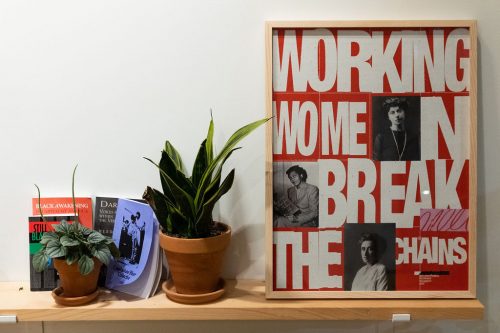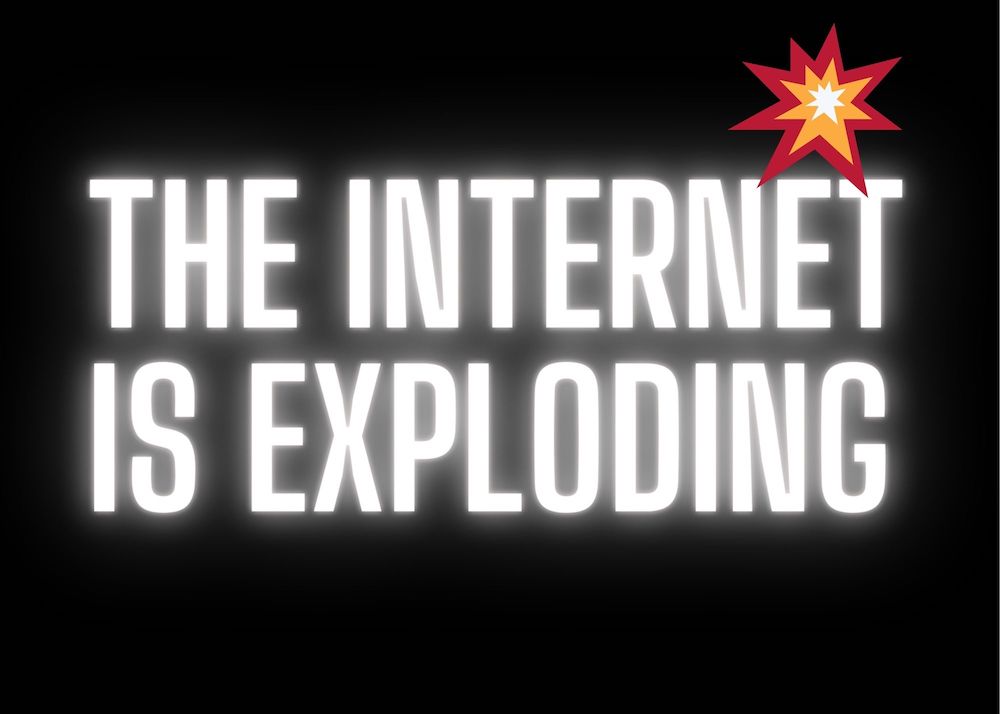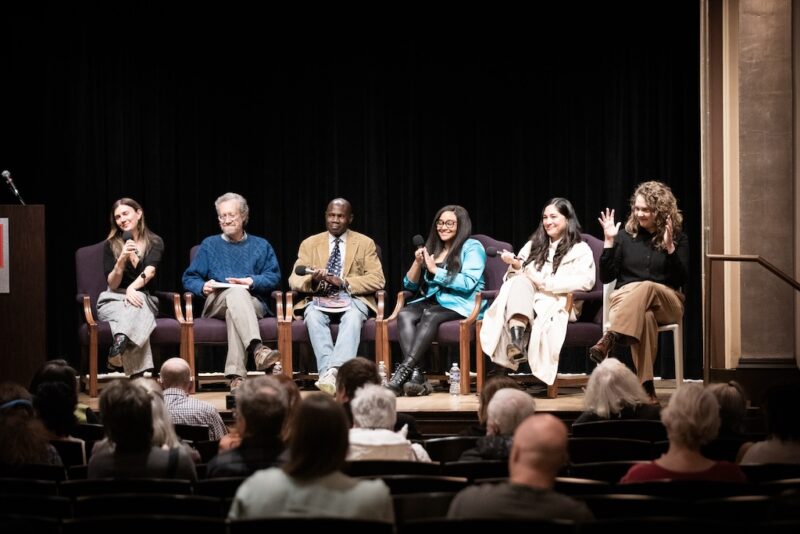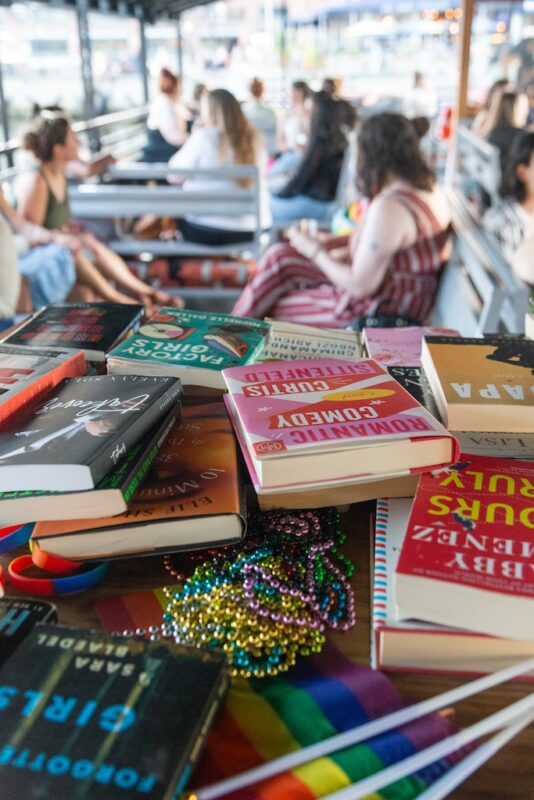It was a week. Brittney Griner continues to be detained in Russia. An Amtrak train derailed in Missouri. Highlights: Roe v. Wade, prayer in public schools, a case against SCOTUS, we are living through scripted TV, Emmett Till, landlords, the Oxford English Dictionary, conscious rap, racism in F1, and Usher’s Tiny Desk.
1. New York Times: Citizens No More
As the fallout continues from the overturning of Roe v. Wade, people continue to express the extent to which this will impact people who can become pregnant in this country. Tressie McMillan Cottom writes of how the decision impacts pregnant people’s ability to move between states, and thus “an employer who offers lower pay in a state with abortion care indirectly benefits from women’s inability to take our labor on the open market across the nation.” She continues: “Jobs and income are the basic units of U.S. citizenship, in practice,” and “for only 58 years of the nation’s 246-year-old economy, women have been able to avail themselves — thanks to Title VII of the Civil Rights Act — of the full citizenship that we effectively purchase through our jobs.”
Some companies are now using their power to pledge to fund their employees’ abortion care, “but it requires women to disclose their health status to a boss they have to hope is well meaning.” Further, even before the decisions, Starbucks pledged to do this, “but its statement adds that it cannot guarantee that benefit to workers in unionized stores…. Potentially attaching support for abortion care to nonunionized labor is a perfect example of why corporations should not be arbiters of human rights.”
2. ReWire News Group: Boom! Lawyered: SCOTUS Brings Prayer to Your Public School
The Supreme Court continued to release ludicrous decisions this week. In “yet another decision day where their rulings ignore precedent,” the Court “took us one step closer to theocratic rule” when “[the] majority sided with the public high school football coach whose prayer circle turned into a community event.” This decision ignored the facts of the case, as Neil Gorsuch’s majority opinion claimed the coach was exercising a private right to religious freedom by praying after football games at the 50-yard line, with both teams and community members. In her dissent, Justice Sonia Sotomayor makes Gorsuch’s lie abundantly clear by including an image of a prayer circle.
3. Vox: The case against the Supreme Court of the United States
I’m still deep in coverage of Dobbs v. Jackson’s Women’s Health Organization and other recent Supreme Court rulings.
In May, Vox published this piece by Ian Millhiser advocating for the abolition of the Supreme Court. (In light of the overturning of Roe v. Wade, it was republished with revisions, according to an editorial note.) Millhiser links 1803’s Marbury v. Madison, in which “the Supreme Court held that it has the power to strike down federal laws,” to the 1857 Dred Scott v. Stanford decision which described Black people as “beings of an inferior order, and altogether unfit to associate with the white race either in social or political relations, and so far inferior that they had no rights which the white man was bound to respect,” as a starting point to discuss the Court’s history of conservatism—something that it “structurally favors.” Millhiser continues: “It’s not surprising that an institution made up entirely of elite lawyers, who are immune from political accountability and cannot be fired, tends to protect people who are already powerful and cast a much more skeptical eye on people who are marginalized because of their race, gender, or class.”
While this isn’t the first time I’ve heard this argument, Millhiser presents it in a clear and concise way that is easily understandable.
4. Slate: The Jan. 6 Hearings Are a TV Hit With an Unexpected Main Character
Earlier this week, I saw a tweet that sardonically observed, “this final season of America has been absolutely amazing. I mean, it starts with an attack on the capital and ends with a new Supreme Court that is actively dismantling democracy? That’s some top notch writing! And it perfectly sets up the Civil War miniseries that will follow…” @xenex11’s tweet presents the current political moment—one that is almost catastrophic, except for the fact that we’ve been told for decades to imagine it—as a meme because at this time it feels like the only way to comprehend what is happening is the fictionalize it. Thus, it makes perfect sense that the January 6th hearings are being recapped just as a TV show would.
A tragic comedy, the hearings include “interludes of highly identifiable workplace intrigue that borders on comic relief,” writes Laura Miller. It not only reads like a TV show but a scripted series, as “the committee is able to craft a tight, suspenseful story free of the usual grandstanding and objections typical of proceedings like the two Trump impeachments,” largely due to the absence of the former president and other GOP leaders.
Part of me enjoys understanding the hearings in this way because it makes sense. But I also wonder what is to come if we consider politics as scripted fiction.
5. Associated Press: 1955 warrant in Emmett Till case found, family seeks arrest
An unserved arrest warrant for Carolyn Bryant Donham, the white woman who accused 14-year-old Emmett Till of “making improper advances” at a store in Mississippi in 1955, which led to the lynching of Till, was found in a courthouse basement. “At the time of the slaying [Donham] was married to one of two white men tried and acquitted just weeks after Till was abducted from a relative’s home, killed and dumped into a river.” The people who found the warrant, Deborah Watts (Till’s cousin and the head of the Emmett Till Legacy Foundation) and her daughter Teri Watts, want the warrant to be served.
The warrant accuses Donham of kidnapping, and Till’s family believes it “amounts to new evidence.” While warrants can “go stale,” paired with new evidence, there could be probable cause for a new prosecution, according to Ronald J. Rychlak, a law professor at the University of Mississippi who was interviewed for this piece.
6. Vice: Among the Landlords
Earlier this week a friend sent me a video of an apartment viewing in New York City. Posted on Instagram, the video shows a line of people out the door and nearly around the corner waiting to view an apartment. The caption notes that “these are lines to view vacant apartments in NYC. With demand soaring, some landlords are taking the highest bidder 😬.” I have a lot of friends in New York City, where I currently live, that are either moving or considering moving when their lease is up. Rents are skyrocketing, and the already unreasonably high cost of living is getting even higher as inflation rates increase across the country.
Matthew Gault attended the 21st annual Mr. Landlord conference, hosted by the website of the same name, in St. Louis to learn “Who is the Mr. LandLord behind the site? What kind of people attend a landlord convention? What are the concerns of the people who collect rent from us? What do they talk about when they meet each other?”
Jeffrey Taylor, Mr. Landlord, insists “that landlords are not all bad.” He laments that COVID was bad for landlords, that “raising rent is not a moral question,” and suggests not to “take it personal.” To Taylor and those like him, Gault writes, “the rent hikes, the avoidance of legal liability, and the eviction of the weakest among us—is just business for them. This is the game. This is the way it’s done.” This piece begins as open-mindedly as Gault’s questions seem; he “was ambivalent toward landlords before this event.” That isn’t the case in the end, as “somewhere around the time [conference speaker] Mike Warren suggested repossessing pets, I was radicalized,” Gault writes. “Landlording is a type of feudalism. For Taylor, raising the rent may not be a moral question, but it feels that way to most of the people living under landlords.”
7. New Statesman: From aardvark to woke: inside the Oxford English Dictionary
I love reading about dictionaries. I’ve always had a tempestuous relationship with language. Although I struggled with reading and writing growing up, I was always so curious about—so interested in—this thing I couldn’t understand no matter how hard I tried.
The Oxford English Dictionary is the first comprehensive catalogue of the English language. The project began in 1857, when “a group of gentleman scholars from the Philological Society… established the Unregistered Words Committee, with the aim of capturing those parts of the English language that had not yet been recorded.” At 16,000 pages, the first edition wasn’t published until 1928, and the second revised edition came in 1989. Since 1993, a team of lexicographers has been working to revise the second edition of the dictionary that “only ever expands,” and includes dialects spoken outside of the UK, known as “World Englishes.”
As a historical dictionary, the OED “shows how a word’s meaning has changed over time, as illustrated by quotations – around 3.5 million in total.” The dictionary is also reactionary, as words must make their way from speech to written form—something that Twitter has been helpful for tracing. But “whether the question is about culture-wars issues of race and gender or a grammatical quibble, the answer is the same: the OED describes how language is already being used; it does not prescribe how it should be used, nor endorse a word’s use. [Lexicographer Fiona] McPherson observes that the dictionary’s reliance on written sources means it is often ‘at the rearguard’ of language change rather than leading the charge.”
8. Pitchfork: The Confessions of a Conscious Rap Fan
Once a fan of conscious rap, Mychal Denzel Smith viewed the hip-hop subgenre as instrumental to “the political project of Black liberation.” But “conscious rap, as an identity and as a political lens, has never been anti-sexist. It’s never been anti-homophobia,” and “the idea of becoming conscious has always been a nostalgia trap, a way of propping up reverence for a bygone era as a critique of the present, to suggest the waywardness of the youth is the true villain of progress,” he writes. With the resurgence of the genre and the rise of rappers like Kendrick Lamar and the return of Black Star, Smith reflects on his growth as “the conscious rappers who used to have some measure of influence on me have remained stagnant.” Smith realizes that consciousness “was always more of a posture than a true worldview, a ready-made aesthetic identity for those of us who were too afraid or too unable to develop real personalities.”
9. Sports Illustrated: Nelson Piquet Banned From F1 Paddock After Racist Remark, per Reports
Last year, Nelson Piquet Sr., a three-time F1 world champion driver, used racial slurs to describe seven-time F1 world champion driver Lewis Hamilton. Piquet has been banned from the paddock for life for this use of derogatory language. Hamilton addressed the incident, tweeting “It’s more than language. These archaic mindsets need to change and have no place in our sport. I’ve been surrounded by these attitudes and targeted my whole life. There has been plenty of time to learn. Time has come for action.” None of this is new to F1 or other sports for that matter. Kelechi Okafor, an F1 fan and “multi-award winning Baby Girl,” did a great Instagram live on the comment, and discussed how F1 needs to take actionable steps instead of giving platitudes.
10. YouTube: Usher: Tiny Desk Concert
One of my friends was waiting for this to drop all week. She was not disappointed—nor was I. Released on the last day of Black Music Month, the set featured songs spanning Usher’s 25-year career, beginning with “a funky horn-laced instrumental reminiscent of a Blaxploitation flick” that leads into his 1997 breakout single “You Make Me Wanna…”






